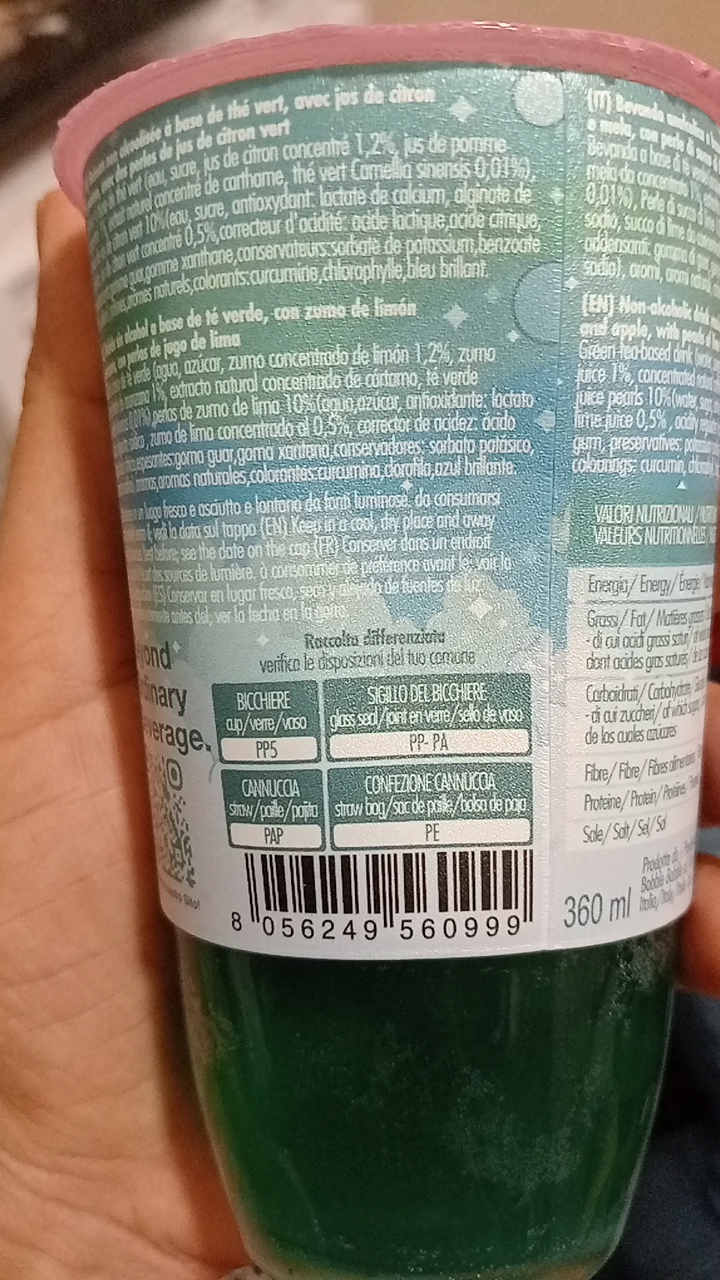
Barcode: 8056249560999
non-alcoholic drink green tea-based drink
HALAL
📝 Reason: The product is considered Halal as it does not contain any Haram ingredients or E-codes. Ingredients with unspecified sources are marked as Doubtful, but they do not affect the overall Halal status of the product as they are not confirmed to be Haram. Islamic sources emphasize the permissibility of consuming what is not explicitly prohibited (Quran 2:173).
🏷️ Category: beverage, tea
📄 Certificates: 360 ml, Vegetarisch, Vegan
Ingredients:
Details
Is the Non-Alcoholic Green Tea Drink Halal?
When it comes to beverages, compliance with Halal standards is paramount for many consumers. Today, we delve into the Halal status of a popular non-alcoholic drink, specifically a green tea-based drink. Not only will we explore its ingredients, but we will also evaluate the Halal certification based on Islamic dietary guidelines.
Understanding Halal Status
According to Islamic sources, particularly the Quran (2:173), anything that is not explicitly prohibited is permissible. Hence, beyond formally certified Halal products, consumers often consider the ingredient list and E-codes to determine the overall Halal status of a product. In the case of the non-alcoholic green tea-based drink, the product is marked as Halal, with no Haram ingredients detected.
Ingredient Analysis
The drink comprises various ingredients, all deemed Halal:
- Water: Typically, water is universally regarded as Halal. No concerns arise here.
- Sugar: Naturally derived and also Halal.
- Lemon Juice Concentrate: Derived from lemons, it is Halal.
- Apple Juice: Made from apples, which are Halal.
- Green Tea: This plant-based beverage is Halal.
- Camellia Sinensis: The scientific term for green tea, also Halal.
- Calcium Lactate (E327): Considered Halal and derived from natural sources.
- Alginate (E401): Derived from seaweed, this ingredient is Halal.
- Citric Acid (E330): Generally Halal, usually sourced from fruits.
- Lactic Acid (E270): Commonly Halal, derived from milk fermentation.
- Xanthan Gum (E415): A carbohydrate, regarded as Halal.
- Potassium Sorbate (E202): A common preservative that is considered Halal.
- Sodium Benzoate (E211): Typically Halal, another usual preservative.
- Natural Flavor: This ingredient is marked as doubtful due to unspecified sourcing, which could potentially impact the Halal status but does not here.
- Curcumin (E100): Sourced from turmeric, proving to be Halal.
- Chlorophyll (E140): Naturally extracted, and Halal.
- Brilliant Blue (E133): A synthetic dye broadly accepted as Halal.
- Lemon Juice: Derived from lemons, also Halal.
- Extract: Like natural flavor, it is marked doubtful due to lack of specified sources.
- Carthamus: A plant-based ingredient, considered Halal.
- Lime Juice: Halal due to its natural origin.
- Guar Gum (E412): Derived from beans and deemed Halal.
- Yellow 5 (E102): A synthetic colorant, generally considered Halal.
Conclusion
In conclusion, the non-alcoholic green tea-based drink is categorized as Halal based on an in-depth review of its ingredients and their respective E-numbers. The highlight of the ingredient list is that none of the elements are outright Haram or pose any serious doubts regarding their sources. Additionally, most E-numbers included are either derived from natural sources or are considered Halal by convention. Although some ingredients remain unclassified due to source ambiguity, they do not detract from the drink’s overall Halal status. For consumers mindful of Halal consumption, this green tea-based beverage stands as a viable and permissible choice.
